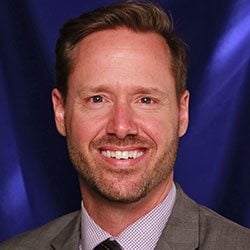
Boy, if there was ever a bad word in education, assessment has become that word. Politicized across various platforms, families have rightfully been frustrated with the volume of time their children are engaged in taking assessments all in the name of accountability. School has turned into more than a place where our children go to learn new concepts, explore innovative ideas, ask genuine questions and interact with diverse people. It also has become a place where the stakes are high, and consequences are statutorily imposed based on scores gleaned from a state test administered on a single day. Unfortunately, all of this has created the misperception that tests are bad or not needed. But they are in fact a critical part of the teaching and learning process.
Imagine for a moment that you want to go on a road trip. To plan the best route to travel, you must first decide where you want to go and where you are in relation to that destination. Your route will be different if you are trying to get to New York City as opposed to Houston. It also depends on where you currently are. If you live in Ohio, your route to either destination will be very different from a person who lives in Dallas.
So, what does this have to do with assessment and teaching? It’s simple. Before I can know what to teach my students, I must first define what it is they need to know. I need to understand what mastery of the concept I am about to teach looks like and assess where my students are in relation to that level of mastery. I need to understand what my students already know (we don’t want to waste their time teaching them something they already understand). And I need to assess where each of my students’ starting points are and decide how to customize their learning pathway to get them to the correct destination – the place of mastery.
Assessment is critical. Only by pre-assessing students before we begin teaching can we know how to differentiate their learning. Only by formatively assessing students while they are in the learning process can we know if they are on track for mastery or if teaching adjustments need to be made to ensure they arrive at the intended learning target.
This best practice – assessment and formative feedback – is one of the most important skills we as educators must master. Here are some steps you can take as an educator to leverage this best practice in your instructional design:
- Decide what your students should know and be able to do to demonstrate mastery of the concept being taught.
- Design and administer a standards-aligned pre-assessment prior to teaching to see where your students are in the mastery continuum.
- . Customize learning pathways for your students to master the learning objectives.
- Locate or create formative assessments to track students’ progress (and to allow students to track their own progress) as they are learning.
- Adjust along the way using the information that formative assessments provide.
Learning is fun! It is especially fun when we are productively challenged and have some ownership in the process. Assessments and formative feedback make that possible. Let’s get back to our roots and use them well for how they are intended!

